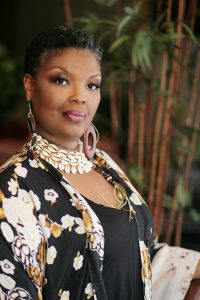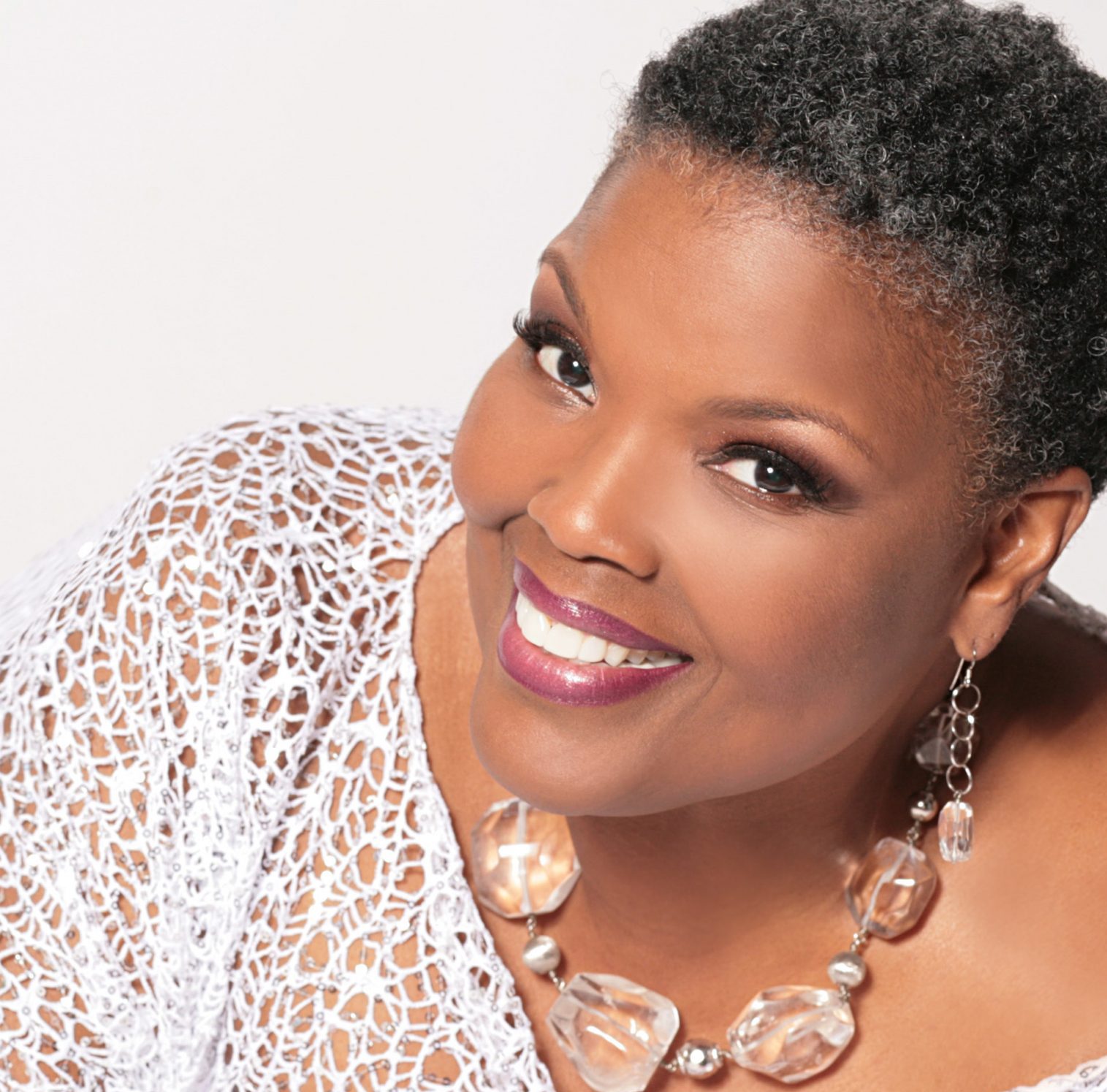Traveling the world as an international opera star, Angela Brown noticed something about audiences. “I would see very few people who looked like me,” says Brown. On the surface, it looked like a racial divide, but when Brown performed at school outreach programs across the country, she realized the gap was bigger than race. “Students just aren’t being exposed to opera in schools,” she says. Words by Crystal Hammon. Photos by Roni Ely. Adapted from Classical Music Indy’s NOTE Magazine.
A Good Morning
Angela Brown’s foundation woos future opera fans and cultivates new talent
Brown’s concern led her to create Opera from a Sistah’s Point of View, a 40-minute program that demystifies opera for audiences who would otherwise have no exposure to it. Historically, she delivered the program in underserved communities where she was already engaged to perform with a symphony or opera company. During the question and answer sessions that followed, Brown learned how much she enjoys talking to young people.
She wanted to do more of it. There was just one problem. “Lots of schools wanted to book the program, but it was too costly as a stand-alone program when I wasn’t already coming to the area for a performance,” Brown says. Her solution: Morning Brown Foundation, a 501 (c)(3) non-profit she founded in 2016. (Morning is code for her initials: a.m. or Angela Marie.) Through fundraising activities and grants, Morning Brown allows the Indianapolis native to plan speaking engagements, master classes and innovative performance opportunities for youth nationwide.

Witness the power of storytelling
Stimulating excitement around opera and classical music is one of Morning Brown’s top priorities. “Opera audiences are dwindling,” Brown says. “Every singer has the responsibility to get out, shake the weeds and bring people into the fold.” In Opera from a Sistah’s Point of View, the charismatic soprano makes operatic stories come alive with relatable storytelling that grips audiences. The show mixes opera with blues, jazz and popular music.
When Brown hears people humming operatic tunes on their way out of the theatre, she knows she has hit her mark. “I give them the feeling that they have actually been to an opera,” she says. “They’re able to experience it because they feel comfortable in their own skins and welcome, free from old, archaic thoughts about opera.”
In her earliest post-show Q & A sessions, Brown learned as much as the teens. She could see that her story had inspirational clout with young people in difficult circumstances. In response, she added yet another program to her repertoire. Nothin’ Beats a Failure But a Try is a TED-talk style program aimed at building self-esteem and encouraging a can-do spirit. It’s mainly for fourth-grade students and above, but it could benefit anyone who needs a lift. “I concentrate on the dream cycle of my life, how I’ve gone from place to place, and the things I’ve done from childhood on up to foster my character and my career,” she says.
A destiny becomes reality
If you only consider her commanding presence or her exotic voice, Brown’s ascent in the opera world might seem like the fulfillment of an obvious destiny. To the young woman who owned the voice, however, the path wasn’t so clear. In fact, the opera seed wasn’t planted until she was in her 20s.
At the time, Brown was grooming herself to be the next Aretha Franklin—a gospel singer who would use her voice to glorify God. As a student at Oakwood College in Alabama, she got a foundation in classical music and languages. She also fell into the hands of expert voice teachers who recognized Brown’s rare gift and encouraged her to pursue opera.
The decision to set aside her original plan in favor of opera was full of angst. She made peace with it, but never forgot what it was like to be uncertain about the future. Her circuitous journey to the top is a story that resonates with people who don’t bloom in traditional ways—and she knows it. “The Lord gave me a bigger pulpit than the church house to spread the love of Jesus Christ,” she says. Indeed, he did.
After graduating from the Jacobs School of Music at Indiana University, Brown moved to New York and started her career, winning vocal competitions, appearing as a soloist and performing with large and small opera companies. At the age of 41, she caught a big break when the Metropolitan Opera asked her to replace a singer who was sick and couldn’t perform the lead in Aida. Brown’s performance that night was a defining moment, distinguishing her as one of America’s great sopranos.
Mothering new opera fans
Whether she is with students at Shortridge High School in Indianapolis or a group of single moms in Chicago’s suburbs, Brown handles questions with grace and compassion. When a high school student asks how to achieve her dreams as an overweight youth, Brown responds as if speaking to a daughter. “Your weight should never be a barrier to anything you want in this world. You have to make sure that when you show up, you walk confidently and make everyone know you’re there in a positive way.”
These days, the 54-year-old opera star is beginning to think about her legacy. She hopes it will be rooted in love. “Because I’m having fun, relaxing and being myself, they have fun,” she says of her Morning Brown audiences. Sometimes she offers slivers of education about when to give applause, but for the most part, Brown lets people just be.
“I try not to make classical music or opera strong meat, you know what I’m saying?” she asks. “A lot of times, classical music is presented in such a stuffy way that you don’t know if you can scratch your face or adjust in your seat because you’re so tense about the whole thing. I just want to love people into this art form.”
Explore what’s going on at the Morning Brown Foundation at morningbrown.org. Angela Brown’s artist website is angelambrown.com







Leave a Reply